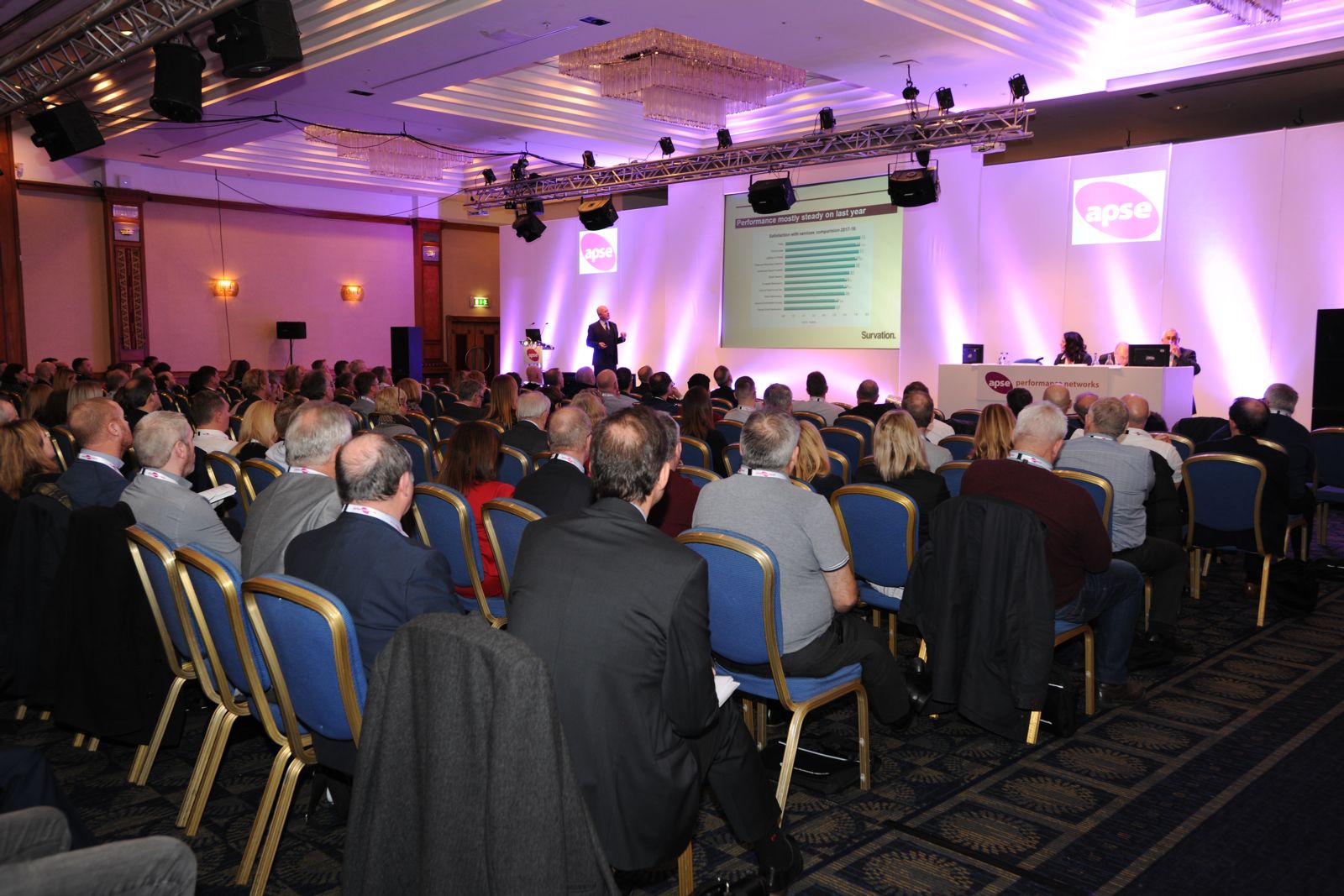Stats Rock! Performance Networks Seminar 2018 Report Back
Missed the 2018 Performance Networks Seminar and wished you were there? No need to panic. We give you a round-up of this year’s speakers, forums and topics.
Data intelligence has become an integral part of service delivery. Therefore, the place to be for those who work in frontline services was beside the seaside at the Performance Networks Seminar 2018. The working seminar is an essential part of the performance networks timetable, and remains an invaluable shared learning experience for councils facing financial uncertainty.
On the morning of 6 December, delegates from across the UK arrived en masse at the Grand Hotel in Blackpool. There they enjoyed two days of expert insight from thought-leaders in local government, and were offered an opportunity to share best practice with fellow delegates.
On the first day of the seminar, delegates heard from various highprofile keynote speakers discussing the ways council services can leverage their data to demonstrate competitiveness and improve performance. In the afternoon, delegates could attend one of six informative and engaging forums and then one of twelve servicespecific workshops. The forums and workshops allowed delegates to discuss issues of local concern and develop solutions with colleagues through problem solving surgeries.
Using performance intelligence at a local level
Opening the seminar Adrian Phillips, Interim Chief Executive of Preston Council, explored the impact of austerity in places like Preston that have lost significant sums of money. However, through a mixture of innovation and pragmatism, the Council has created positive results for local communities. Adrian also paid tribute to the frontline workers on the ground who deliver the services which really matter to local communities, adapting and changing to meet the emerging needs of their local residents in spite of the financial pressures.
Adrian Phillips, Interim Chief Executive of Preston Council, addressing delegates.
How are frontline services performing
Paul Smith of Survation followed on from this theme of residents in sharing the results of the APSE / Survation 2018 public opinion survey. Paul explained that some of the key highlights from the report were that four times as many still trust the local council over the Government to make decisions about how services are delivered in local areas; six times as many trust local Councillors over Government ministers to make decision about their local area and four and half times as many trusted Councils to provide services in their local area over a private company, with people trusting the council five times more than the Government. Interestingly Mr Smith also said that 80% of the public would like the Government to give more money to local councils to spend at the local level for services that are in their neighbourhood. This shows there is huge support amongst the public for those neighbourhood level services that councils deliver on a daily basis to residents.
Survation’s Paul Smith shares the results from the latest APSE and Survation public opinion survey
Maintaining or improving performance?
APSE’s Debbie Johns was up next to provide a picture of performance within the UK from the data sets in performance networks. Debbie opened her address by noting how UK local government spending as a share of GDP, already below the 1979-2014 minimum, is projected to go on falling to 2020.
How has this reduction in spend been reflected in performance networks data on neighbourhood services?
In terms of the direction of travel for frontline services, Debbie explored a variety of data over different service areas and shared her findings. For example in areas like Parks key productivity indicators like the numbers of hectares maintained per FTE front line employee has shown a 30% increase since 12/13; whilst in one sense this is a positive outcome it also reflects reduced staffing numbers, and changes to the services due to budget pressures. In sports and leisure services, for both wet and dry facilities, operational recovery ratios have improved over the period. This appears to demonstrate a much more commercial mind-set in the sector where ancillary sales and returning customers are of increasing importance to council facilities.
In areas like refuse collection the ongoing pressure to reduce landfill and increase recycling is shown in a positive picture for the sector. The percentage of residual household waste going to landfill each year has seen a reduction of 27% since 2009/2010. However, Debbie warned to continue this achievement it is likely that new investment would be needed in both collection methods and waste disposal plants. This was, she argued, vital to address environmental concerns. There was also a theme to emerge in the street lighting sector where the increase in LED lighting has led to both a reduction in CO2 emissions of 36%, and significant cost reduction in energy costs per light reducing by 11% from 2012/2013.
Debbie then updated delegates as to the progress being made by the Performance Networks Service in expanding its influence, launching new projects and improving user-experience.
Page 1 of 2 >


 ?
?
.png)



.png)